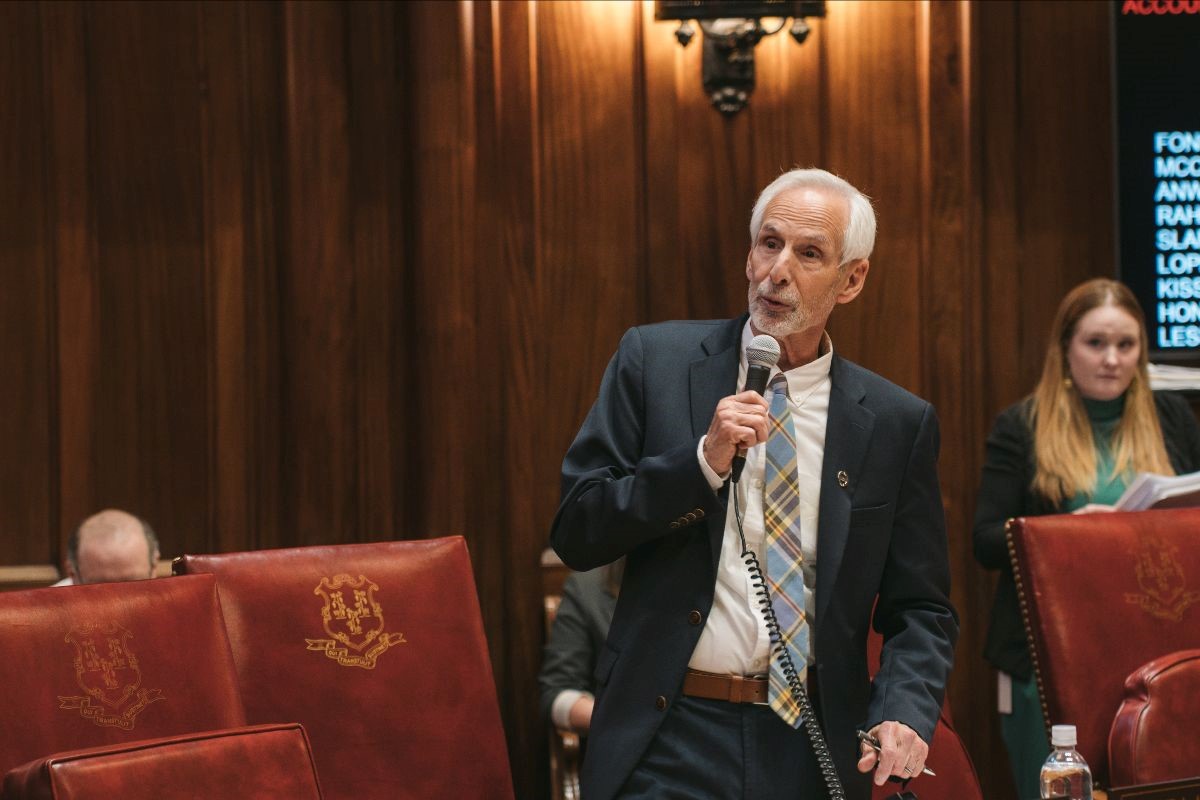Sen. Cohen Votes to Support Connecticut Farmers
HARTFORD – On Monday, State Senator Christine Cohen voted to pass expansive legislation that provides income and property tax credits for farmers, establishes a crop loss reimbursement grant program, permits use of drone for precision agriculture and more. Certain provisions legislation comes in large part from the advocacy of local farmers William DellaCamera of Cecarelli Farms in Northford and Keith Bishop of Bishop’s Orchards in Guilford.
William DellaCamera made headlines in 2024 when a hail storm decimated his crops and ability to make a living. Demanding federal assistance for his farm and farmers across the country, Willie drove his tractor to Washington D.C. to advocate for a $220 million federal block grant to support small and medium farms like his, as well as $21 billion to cover agriculture losses caused by natural disasters.
The block grant funding was approved in December of 2024 and included $23 million for Connecticut farms; the funding has yet to reach farmers.
With the status of federal support unknown and extreme weather events happening more frequently due to climate change, Connecticut legislators passed comprehensive legislation that includes a state-backed safety net for farmers facing crop losses due to extreme weather.
The legislation also:
-Provides a 20% income tax credit for farmers investing in machinery, buildings or equipment, supporting farmers struggling with costs and inflation
-Increases the local property tax exemption on farm machinery to $250,000, an increase from $100,000, with another $250,000 in savings if municipalities opt in; municipalities can also exempt up to $500,000 of farm buildings supporting barns, greenhouses and storage facilities
-Establishes a state-backed crop loss reimbursement grant program will help support farmers who face crop losses after extreme weather events, following increased flooding seen in recent years
-Provides civil liability protections for farms engaged in agritourism, like pick-your-own fruit
-Creates a Manure Management Grant Program, ensuring farms can better comply with environmental standards while protecting soil and water quality
-Permits the use of drones for precision application of fertilizers and pesticides
-Encourages schools and food pantries are to use container farming
“Farmers are the backbone of our nation and are already subject to so much volatility from the weather, to insects, to cold snaps and more, yet they remain adaptable, they persevere and they keep us fed,” said State Senator Christine Cohen. “I am so pleased to see this legislation passed, as it is a message to our farmers: We have your backs. I am grateful to Willie Dellacamera and Keith Bishop for their tireless advocacy and look forward to continuing to work together and ensuring Connecticut remains a strong partner to our local farmers.”
“After experiencing a devastating hailstorm during the 2024 growing season, I saw firsthand how vulnerable farmers are to extreme weather. Senator Christine Cohen not only listened, but took real action—helping to advance SB 1497 to support disaster recovery for farmers. This session, she has continued to stand up for agriculture, supporting key legislation on tax relief for farmers, the responsible use of drones in agriculture, and critical agritainment insurance measures. Her commitment to Connecticut’s farming community is unwavering, and I’m grateful for her leadership and genuine support,” said William DellaCamera, Northford Farmer
“This ‘CT Farm Sustainability Bill,’ with Senator Cohen and Representative Candelora as 2 of 11 co-sponsors, is the most comprehensive and supportive piece of agricultural legislation to emerge from the Connecticut legislature in decades,” says Keith Bishop, 5th generation farmer and President of Bishop’s Orchards in Guilford, CT. “It recognizes and addresses the critical needs of our farms, ensuring their long-term viability. Crucially, it incentivizes farm businesses to reinvest in our Connecticut farms for the long term through various avenues. This will directly support jobs, bolster our local food supply, promote agritourism, and contribute to the preservation of agricultural land and buildings.”










